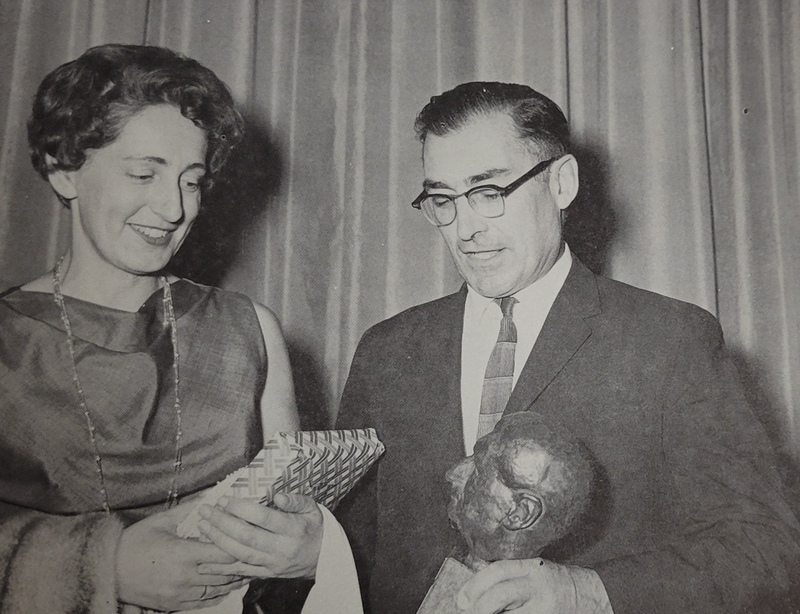Beyond the Rocket Men
James R. Hansen, in an interview for the Alabama Public Television documentary "Missile to Moon," remarked that the German rocket team's transition from Ft. Bliss, Texas, to Huntsville, Alabama, in the 1950s was relatively easy. However, Hansen's statement overlooks the broader perspective, including the experiences of the German Rocket Wives.
“I think the assimilation took place rather easily"
- Dr. James R. Hansen
This image of Ruth and Karl exemplifies the historical narrative commonly presented by historians and the public: the German rocket scientists celebrated for their expertise and contributions to American astronautical endeavors.
While these men played a crucial role in the success of the moon landing, the contributions of their wives remain conspicuously absent from historical accounts and public awareness. This omission of an entire gender from the narrative of the German rocket team creates a gap in our understanding of the U.S. space race and their contributions to the community of Huntsville, Alabama. The experiences of the German Rocket Wives offer valuable insights into the silent burdens they bore, the fusion of identities, and the continuity of culture, perspectives that can only be appreciated through a gendered lens.

